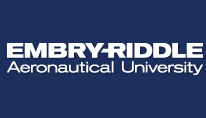T2-A: Developing Engineering Education Products via Project Ownership Oriented Learning in an Undergraduate Mechanics of Materials Course”
Location
Bill France A
Start Date
5-3-2018 1:45 PM
Description
Engineering students can experience hands-on learning in laboratory courses. However, running experiments and analyzing data often demand significant student time. Sinking time into these activities is a challenge because while they may induce learning, data collection and processing produce no tangible external benefit. Students value and engage with activities that carry external impacts complimentary to their own learning. Such learning environments are achieved when multi-semester engineering Capstone Design projects are sponsored by industry and students produce working prototype solutions for companies. However, it remains uncertain whether similar learning environments can be created in a single-semester laboratory course.
This paper introduces a new pedagogical technique called “Developing Engineering Education Products via Project Ownership Oriented Learning” (DEEP POOL). This approach is predicated on the hypothesis that student engagement, enthusiasm, and interest in laboratory work will increase if the lab is structured so student activities support the development, construction, testing, and commercialization of real products for an engineering education company. Increased student excitement and participation should produce student achievement of Learning Outcomes on par with or better than conventional lab courses.
Jacksonville University’s 2017 Fall Mechanics of Materials course pioneered the DEEP POOL pedagogy. This paper describes how the course’s laboratory component was structured to focus student time toward creating, fabricating, testing, and analyzing new and novel sample coupons for the PASCO EX-5515A Materials Stress-Strain Experiment in collaboration with Engineer Inc, an engineering education technology company.
T2-A: Developing Engineering Education Products via Project Ownership Oriented Learning in an Undergraduate Mechanics of Materials Course”
Bill France A
Engineering students can experience hands-on learning in laboratory courses. However, running experiments and analyzing data often demand significant student time. Sinking time into these activities is a challenge because while they may induce learning, data collection and processing produce no tangible external benefit. Students value and engage with activities that carry external impacts complimentary to their own learning. Such learning environments are achieved when multi-semester engineering Capstone Design projects are sponsored by industry and students produce working prototype solutions for companies. However, it remains uncertain whether similar learning environments can be created in a single-semester laboratory course.
This paper introduces a new pedagogical technique called “Developing Engineering Education Products via Project Ownership Oriented Learning” (DEEP POOL). This approach is predicated on the hypothesis that student engagement, enthusiasm, and interest in laboratory work will increase if the lab is structured so student activities support the development, construction, testing, and commercialization of real products for an engineering education company. Increased student excitement and participation should produce student achievement of Learning Outcomes on par with or better than conventional lab courses.
Jacksonville University’s 2017 Fall Mechanics of Materials course pioneered the DEEP POOL pedagogy. This paper describes how the course’s laboratory component was structured to focus student time toward creating, fabricating, testing, and analyzing new and novel sample coupons for the PASCO EX-5515A Materials Stress-Strain Experiment in collaboration with Engineer Inc, an engineering education technology company.


